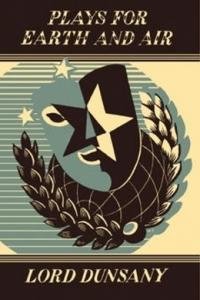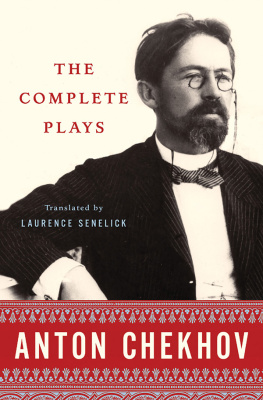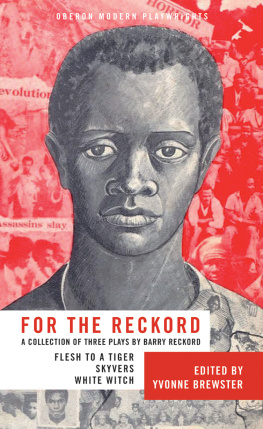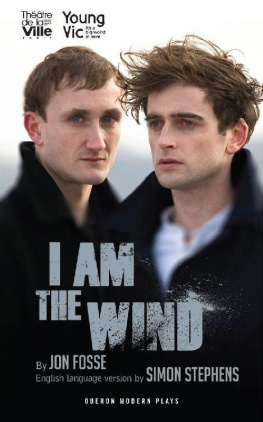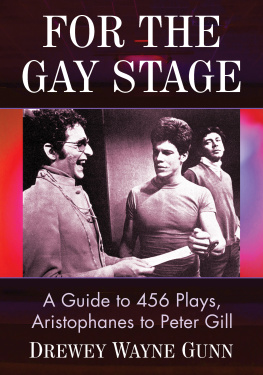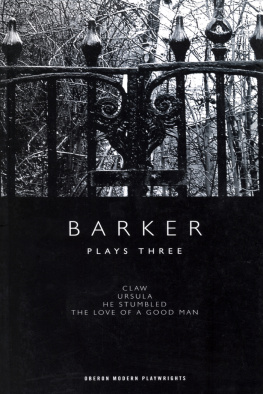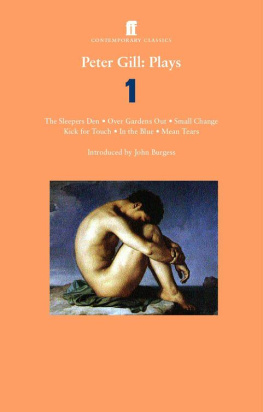Regional Best
2011
Edited By William Roetzheim Level 4 Press, Inc.
San Diego, CA Individual plays are copyright 2010 by the respective playwrights and all rights are reserved by those playwrights. Level 4 Press, Inc. has no performance rights to the plays, and instructions for those seeking performance rights are included in the preface to each individual play. The book as a whole is Copyright 2010 by Level 4 Press, Inc. and all rights reserved, including the right to reproduce this book, or portions thereof, in any form. This book is printed on acid-free paper.
Published by
Level 4 Press, Inc.
13518 Jamul Drive
Jamul, CA91935
www.level4press.com ISBN:978-1-933769-50-9
Printed in USA
Preface
I had the pleasure of sitting on a panel during a theater festival in New York (Planet Connections, I believe) and one of my fellow panelists was theater critic and editor of
The Clyde Fitch Report, Leonard Jacobs. While we were waiting for things to get started, I explained to Leonard that I was planning a new annual anthology of plays and I was exploring different themes or approaches. He suggested an anthology focused on regional plays. Over the next couple of weeks I thought about this, talked it over with regional theater artistic directors that I knewand the more I investigated it the more the idea made sense. Even with successful productions and rave reviews, the substantial number of great plays that delight regional theatre audiences do not always receive the national exposure they deserve. I became convinced that the best of that work deserves a platform for even greater exposure.
Its my hope that Regional Best will serve as that platform. Questions naturally arise about my selection of the plays for inclusion in the anthology. The entry criteria into the process was that the play had premiered on stage at a regional theater, but that it did not yet have significant exposure in New York City. I then personally read all of the submissions, and selected the plays that I liked. What I was looking for was three things: As a playwright, do I feel like the play was well written and closely related, did I enjoy reading it; As a producer, would I like to produce this play if I had the opportunity; and As a theater-goer, would I like to see this play if it was on-stage? A play that did well in all three dimensions was accepted. A play that failed in any dimension was rejected.
I did not restrict the plays to any specific length, and in fact, ended up accepting everything from ten minute plays all the way up to full-length plays. The final selections were (with approximate running times shown): The Pie Dialogues by Joseph Lauinger (129 minutes) Alien Hand Syndrome by Michael Erickson (33 minutes) Besides, you lose your soul or the History of Western Civilisation by Julia Lee Barclay (90 minutes including improvisations) Laying Off by James McLindon (15 minutes) Safe by James McLindon (13 minutes) Boston Forty-Nine Flamingo by K Biadaszkiewicz (78 minutes) Causa Morts by Jacob Appel (107 minutes) Small Things by Cary Pepper (42 minutes) The Sweet Abyss by Jon Tuttle (128 minutes) Finally, I should emphasize that the authors (or their agents) retain performance rights to the plays. Instructions for obtaining performance rights is included at the start of each play, and you must obtain the appropriate rights if you are interested in bringing any of these plays to the stage. But I do encourage you to do this, as a play is not truly alive except when its on stage. 
William Roetzheim, Editor
william@aitheater.org
Contents
The Pie Dialogues
By Joseph Lauinger Joe Lauingers plays have been performed throughout the United States and in Canada, England, Australia, and India.
Mothers Day (2000) was a finalist at the Humana Festival and was produced at Gallery Players in Brooklyn, NY, and at the Stamford Center for the Arts in Connecticut in 2001.
His one-acts have appeared at many festivals including the Samuel French Love Creek Festival (NYC), the Attic Theatre (L.A.), the Nantucket Theater (MA), and the TANYS Festival of 2000 where What A Moon!, directed by Joe, won Best Short Play. The Green Cheese Mystery won the John V. Gurry Competition for Best Short Play in 2001, awarded by Confrontation. Rich on Skins won Best Play at the Shortened Attention Span Festival at the Players Theatre in Greenwich Village in 2007, and The Chamberpot won the Golden Curtain Award (Best of Festival) at the New Voice Play Festival 2008 at the Old Opera House in Charles Town, WV. The Pie Dialogues was developed under the title of Dawn and Sean in the 2006 Gallery Players Reading Series and won Best Play as a staged reading at the Dayton Playhouse FutureFest 2007 in Dayton, Ohio. It was produced at the Main Street Theater in Houston, TX, during February and March 2009.
Joe teaches dramatic literature at Sarah Lawrence College in New York and is a member of the Dramatists Guild. The Pie Dialogues was premiered at the Main Street Theater in Houston TX, on February 26, 2009, Rebecca Udden, Artistic Director. It was directed by Andrew Ruthven and featured Gwendolyn McLarty as Dawn and Josh Morrison as Sean. Performing rights may be obtained from Joe Lauinger, c/o Sarah Lawrence College, Bronxville, NY 10708, now jlauinger@sarahlawrence.edu or josephlauinger@verizon.net, 914-762-0839. Characters:
Dawn, the mother.
Sean, the father. Setting: The play takes place in eight dialogues.
Contemporary U.S. The action starts when Dawn and Seans daughter (called Pie) is a toddler and proceeds until she is in her late twenties. 1. What does she know?: a living room in a small apartment. 2. 3. 3.
The mercy rule: behind the bench of a girls softball game. 4. Grandmas sweater blue: a coffee shop. 5. Perjury at the prom: a living room in a big house. 6.
Malmsey: a college-dormitory room. 7. The whistling groundhog: table at a restaurant. 8. Class: an airport sitting area. SCENE ONE: What does she know? A spare and darkened living room: cheap sofa, armchair with a marble notebook on it, TV, with its dim blue glow.
DAWN sits on the sofa, dozing in bathrobe and slippers, a yellow legal pad and some paperwork on her lap. SEAN enters in an undershirt, unbuckled pants, and socks. He yawns and falls into the armchair in front of the TV. SEAN: Singing in her sleep. DAWN: [Eyes still closed.] Hmm? SEAN: She was singing in her sleep. DAWN: Bed for me.
Ive had it. [She sits up sleepily, yawning.] What was she singing? SEAN: Some song. I sort of recognized it. DAWN: Something from Sesame Street. SEAN: Dont think so. DAWN: Well, Ive got to be up early tomorrow SEAN: Its Later Than You Think.
DAWN: Yeah. I just drifted off there. How long was I asleep? SEAN: No, its the song she was singing. Its Later Than You Think. DAWN: Never heard of it. You coming? SEAN: Might try to write down a few notes.
DAWN: While youre watching TV? SEAN turns off the TV and picks up the marble notebook. He tries to shake himself awake. SEAN: You dont have to stay up. DAWN: I should get through this one brief at least. [She yawns and picks up her papers. He writes a word or two in the notebook.
They both are very tired.] Whos it by? SEAN: What? DAWN: Its Later Than You Think. SEAN: Nobody. Its like from the Twenties or something. Rudy Vallee. Its a classic. [Singing in a monotone:] Oh, its later than you think dah-dah dum dee dum dee dah.
DAWN: Like that helps. SEAN: So Im not Rudy Vallee. She sure picks up weird things sometimes. DAWN: Whoever wrote the song was weird, not her. SEAN: I didnt say she was weird, I said she picks up weird things. DAWN: All kids are weird sometimes.


